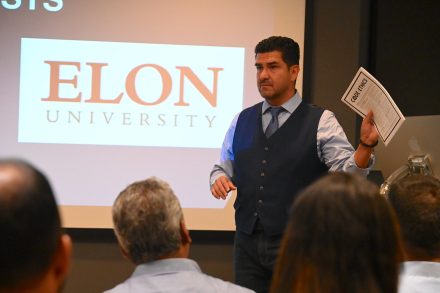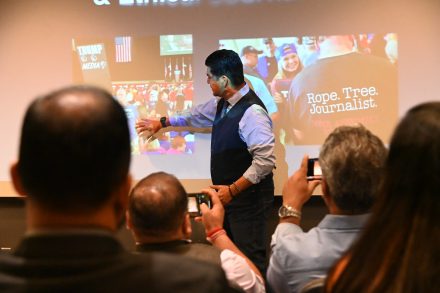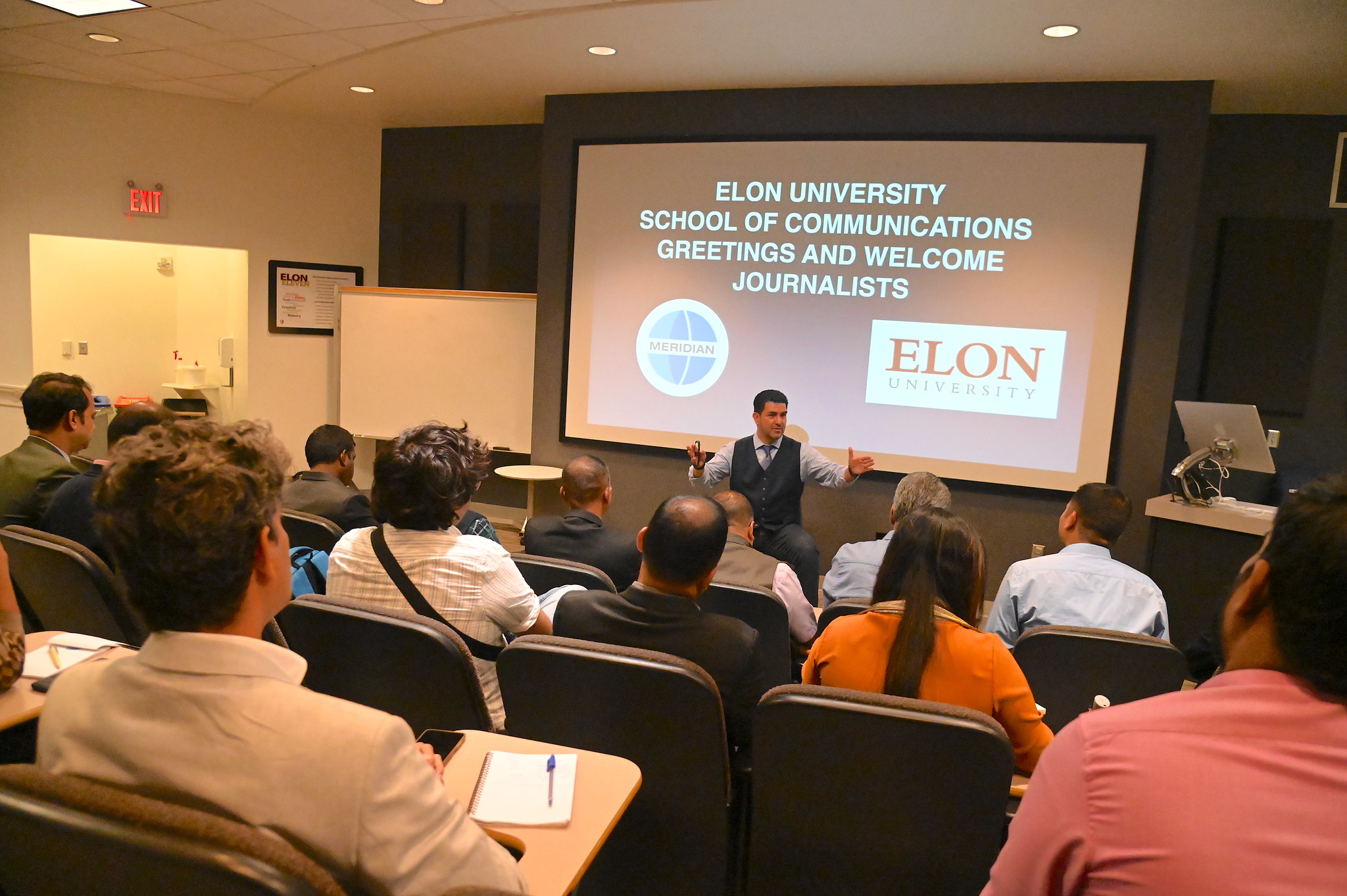The professional journalists participated in two sessions led by Elon professors during their U.S. tour with the Meridian International Center focused on disinformation, ethics and credibility.
A cohort of journalists from Bangladesh, India, Nepal and Sri Lanka participated in sessions this week led by Elon faculty members Israel Balderas and Amanda Sturgill centered on disinformation and media ethics as part of a U.S. tour organized by the Meridian International Center.

The tour, funded by the U.S. Department of State, is focused on disinformation, ethics and credibility, includes journalists from a variety of media from South and Central Asia and focuses on connecting them with elected officials, academics and members of the private sector. Along with the stop Tuesday at the Elon School of Communications, the group visited Washington, D.C., the Cronkite School of Journalism and Mass Communications at Arizona State University, the Poynter Institute in St. Petersburg, Florida, and other locations.
During the visit to Elon, the journalists met with Assistant Professor of Journalism Israel Balderas, who drew from his experience as a working broadcast journalist and leader within the Society of Professional Journalists to talk through the power and obligations those within journalism have to educate and inform the public in support of a more engaged democratic society.
Balderas acknowledged that in the United States, protections such as the First Amendment support the work of journalists as they seek to hold the powerful accountable and exercise their freedom to report.
“I think American journalists can take journalism for granted,” Balderas told the group. “I tell my students, when I think of international journalists, they are very brave people. They often work without the same protections we have here.”
Members of the group shared how enriching it was to visit the United States to meet with fellow journalists and to realize the commonalities they have in the work they do and the challenges they face. “Meeting different journalists who are working on the same topics we are is exciting,” one attendee said. “It is such a good learning experience.”

They voiced some of the challenges they encounter as they are trying to seek out information that those in power may not be brought to light. Sivapriyan ETB is an assistant editor at the Deccan Herald newspaper who covers Tamil Nadu, a province in southern India. He said that it has become increasingly difficult to convince sources to allow the publication of their names and titles, a practice that lends credibility to what’s being reported.
Balderas walked the group through his coverage of the weeks leading up to the 2016 presidential election when he was a reporter and anchor with a West Palm Beach, Florida, station. He drew from the segment he produced from a Donald Trump rally about two weeks before Election Day when he chose not to focus on the hostility of the crowd, driven in part by the claims of the candidate, toward the media. Balderas says he can now see connections between that night and the violence during the Jan. 6, 2021, insurrection in Washington, D.C.
Balderas asked for feedback on his editorial decisions that day, with one offering that he could have done a separate segment that focused more clearly on the treatment of the media, which Balderas agreed would have helped lift up the early claims that Trump was making about the election being “fixed.”
“If you’re going to be a journalist today, welcome to the new normal,” Balderas said. “If you’re not prepared for this, go do something easy because this is hard.”
The group concluded their visit to Elon with a session led by Associate Professor of Journalism Amanda Sturgill, whose 2020 book, “Detecting Deception: Tools to Fight Fake News,” was designed to help news consumer weed through an increasingly crowded information environment and identify the most common bad arguments people make. Before leaving the university and heading to the Poynter Institute in Florida, they took a guided tour of the School of Communications facilities.



